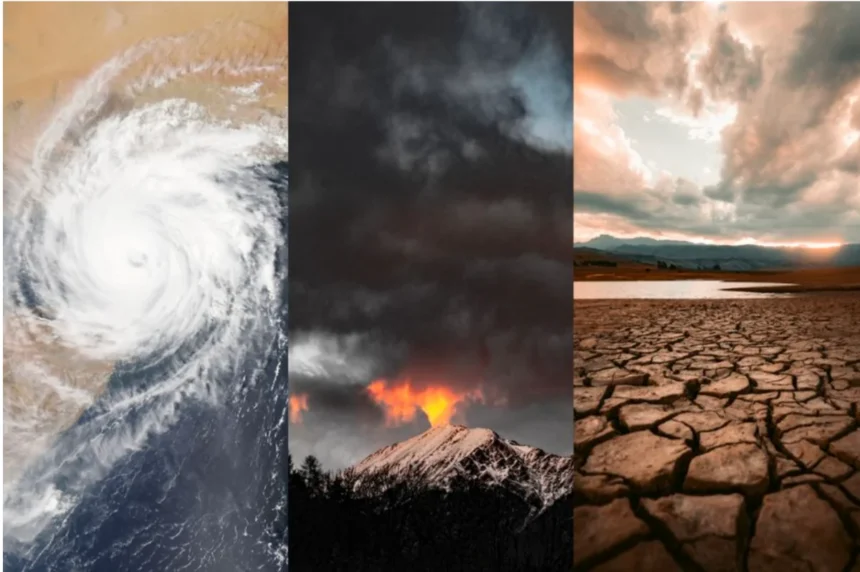The United Nations weather office said on Wednesday that the quantity of heat-trapping carbon dioxide in the atmosphere increased by the most since last year, reaching a level never before seen in human civilization and “turbo-charging” the Earth’s climate and producing more extreme weather.
“C02 growth rates have now tripled since the 1960s and reached levels not seen in at least 800,000 years,” the World Meteorological Organization stated in its most recent bulletin on greenhouse gases, an annual assessment published ahead of the U.N.’s annual climate summit.
People and companies continue to emit heat-trapping gases as the planet’s seas and forests lose their capacity to absorb them, according to the WMO research, which also noted that emissions from burning coal, oil, and gas, as well as an increase in wildfires, have contributed to a “vicious climate cycle.”
“The global average concentration of carbon dioxide increased from 2023 to 2024, reaching the highest annual level of any one year since measurements began in 1957,” the Geneva-based agency stated. The WMO reported that CO2 growth rates had accelerated from an average yearly increase of 2.4 parts per million during the 2011–2020 decade to 3.5 parts per million during 2023–2024.
“The heat trapped by CO2 and other greenhouse gases is turbo-charging our climate and leading to more extreme weather”,
“Reducing emissions is therefore essential not just for our climate but also for our economic security and community well-being.” stated in a statement by Ko Barrett, the deputy secretary-general of the WMO.
The new data was described as “alarming and worrying” by Climate Analytics CEO Bill Hare. He claimed that despite fossil fuel emissions being “relatively flat” the previous year, the report seemed to indicate that CO2 levels in the atmosphere were rising more quickly. “Signaling positive feedback from burning forests and warming oceans driven by record global temperatures.”
“Let there be no mistake, this is a very clear warning sign that the world is heading into an extremely dangerous state — and this is driven by the continued expansion of fossil fuel development, globally, I’m beginning to feel that this points to a slow-moving climate catastrophe unfolding in front of us.” Hare stated.
The WMO has urged policymakers to take stronger action to cut emissions.
While some governments continue to rely on fossil fuels, local authorities and businesses are advancing efforts to fight climate change.
Hare said few countries have made new pledges that reflect the seriousness of the crisis.
The WMO warned that 2024’s rising temperatures signal a long-term warming trend, as methane and nitrous oxide levels hit record highs.
As was inevitable, the research cast doubt on the world’s capacity to meet the 2015 Paris Climate Accord’s target of limiting the increase in global average temperature to 1.5 degrees Celsius (2.7 degrees Fahrenheit) over pre-industrial levels.
The Earth is currently on course to reach 3 degrees Celsius (5.4 Fahrenheit), according to Simon Stiell, the head of the United Nations climate agency.
However, carbon dioxide levels are still increasing at one of the fastest rates ever recorded, albeit not quite as quickly as they did in 2023 and 2024, according to worldwide statistics released by the U.S. National Oceanic and Atmospheric Administration through June of this year.
CO2 levels are still rising, although not as much as they were in 2023–2024, according to the agency’s monthly statistics for the long-running Hawaii monitoring site for 2025–August.
Source: BBC News






